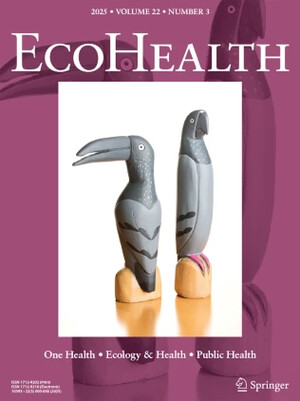
Evaluation of a candidate thermotolerant vaccine against peste des petits ruminants in Mali
Abstract
Objective
The objective of this study was to evaluate the thermotolerance profile of a PPR vaccine protocol developed by ILRI and transferred to the LCV (lot ILRI 005ND) under laboratory and field conditions.
Methods
The attenuated PPRV 75/1 LK6 BK2 Vero70 strain was used as a production antigen with Lactalbumin hydrolysate-sucrose (LS) as stabilizers and vero cells used as host cells in the multiplication of the viral strain. The formed vaccine fluid was divided into a 2 ml per vial/100 doses. The freeze-drying was carried out according to the ILRI protocol during 62h50mn following 20 steps. The final titre of the vaccine was 105.66 TCID50. The quality of the vaccine lot ILRI 005ND, as well as its thermostability profiles have been tested by the PANVAC under the QCR1731, reference N°P188/709/58/20 of 08 January 2021.
In the laboratory, the thermotolerance of the vaccine was evaluated at the LCV under three scenarios for 14 days:
Scenario A: under ice (+4°C to +8°C)
Scenario B: room temperature (32.5°C to 38.5°C)
Scenario C: under incubation at 40°C and 45°C.
In the field, 626 serum samples were collected from sheep and goats in three villages in Koutiala region. These sera were subject to two successive PPR serological tests to ensure they were negative. The vaccine was then reconstituted with 500 ml of sodium chloride solute 0.9% before use on animals.
Scenario 1: 284 animals were vaccinated after 3 to 5 days of vaccine stored at ambient temperature during transport from the laboratory in Bamako to the field (395 Km) (+21.5°C to +34.8°C), storage on site (± 25 °C) and field for vaccination (maximum exposure + 51°C).
Scenario 2: 162 animals were vaccinated after 6 to 7 days of vaccine having undergone thermal shocks with freezing storage temperature (-20 °C), storage on site (±33°C) and maximum field exposure (+47 °C).
Scenario 3: 180 animals were vaccinated after 8 to 9 days of vaccine stored permanently under cold chain from the laboratory to the feet of the animal (-18°C to +19°C).
Results
In the laboratory after 14 days, with an initial vaccine titre of 105.66 TCID50
Scenario A: titre was 105.45 TCID50
Scenario B: titre was 103.80 TCID50
Scenario C: titres were 104.30 TCID50 at 40°C but less than 102.5 (minimum required) at 45° C
In the field at one month post vaccination
Scenario 1: 97.88% seroconversion
Scenario 2: 98.76% seroconversion
Scenario 3: 99.44% seroconversion
No significant difference was observed in seroconversion between the tree lots (X-squared=1.9488; p-value =0.3774)
Conclusion
The vaccine maintained a satisfactory titre under different thermostability profiles in the laboratory. Sero-conversion rates in the field after vaccination was also good . The next step is to carry out sero-neutralization assays on the collected serums to measure protection rates of animals.
Citation
Sidibe, C.A.K., Séry, A., Kantao, O., Fall, A., Niang, M. and Dione, M. 2022. Evaluation of a candidate thermotolerant vaccine against peste des petits ruminants in Mali. Presented at the Peste des petits ruminants Global Research and Expertise Network (PPR-GREN) meeting, Montpellier, France, 7–9 December 2022. Nairobi, Kenya: ILRI.









